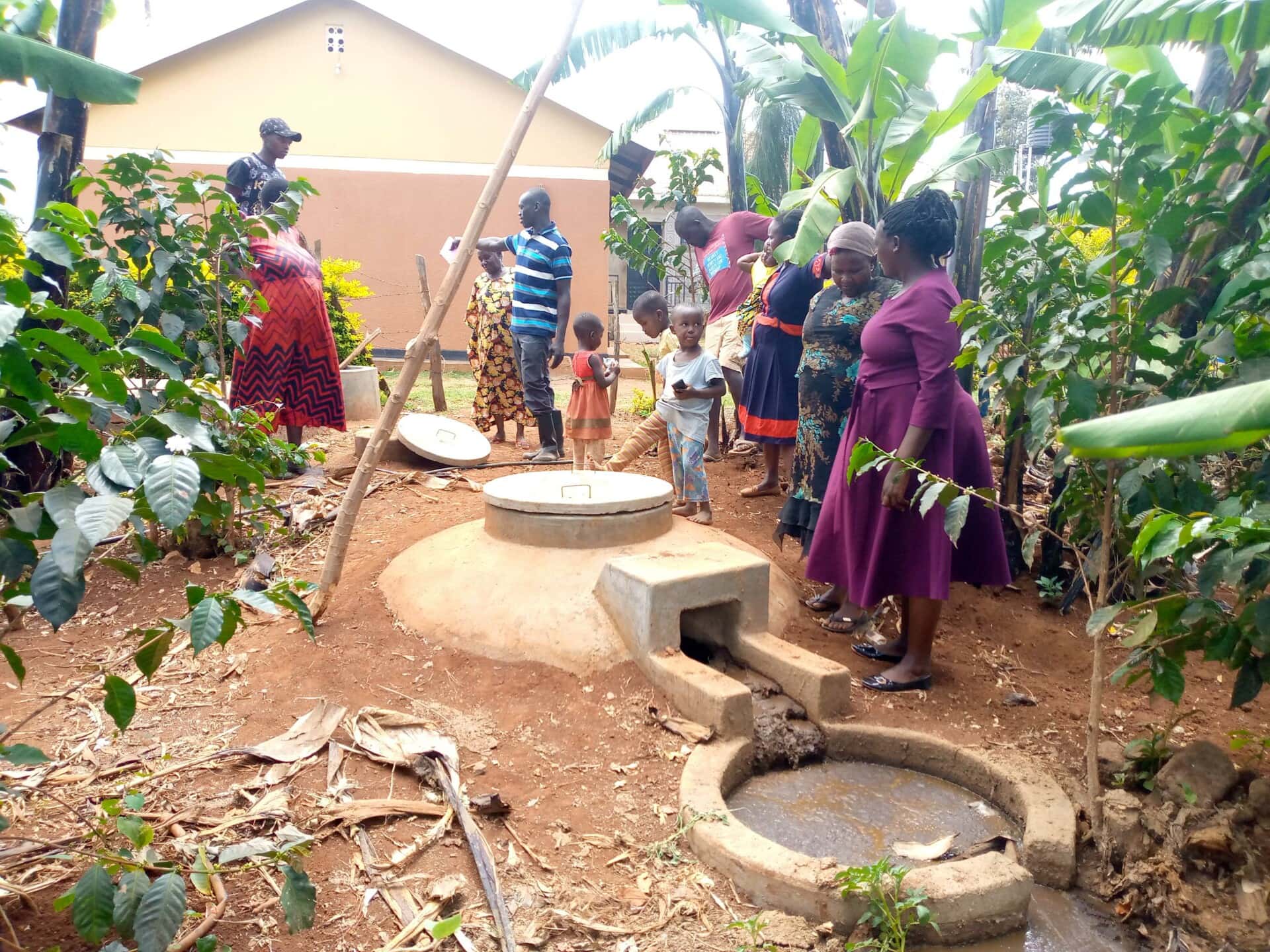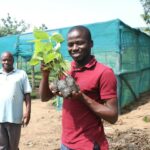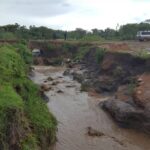Biogas for more productive farms and healthier lives

In the Green Future Farming project, biogas digesters are promoted to overcome the combined challenges of indoor air pollution and soil erosion and degradation in the coffee-growing Sebei sub-region of Uganda. Aidenvironment is involved in a demo that recently started.
Trees in the Kapchorwa, Kween, and Bukwo Districts of Uganda are cut down for firewood or for sale, leading to high deforestation and soil erosion. This and the low fertility of the degraded soils mean lower yields of poorer quality coffee – and thus lower incomes. The women often cook in poorly ventilated kitchens using firewood as fuel, exposing them and their young children to high levels of indoor air pollution, especially wood smoke. This adversely affects their health as they usually spend more time indoors.
The use of biogas will reduce reliance on wood fuel, in turn reducing pressure on trees and lessening the exposure to indoor air pollution. The byproduct (bioslurry) will be used in the gardens to replenish soil fertility to raise coffee yields.
The Green Future Farming (GFF) project is promoting the use of biogas digesters and enabling their construction through a blended financing model involving a 40% subsidy, a loan component, and beneficiaries’ up-front own contributions. Discussions are ongoing with the local bank on the provision of loans. The farmers’ own contribution will be partly met through access to credit from the bank or through cash (own savings) or in-kind (provision of labor, excavation pits, provision of gravel, feeding of masons, etc.).
The project beneficiaries are mainly coffee farmers and were recruited through farmers’ groups. The groups were identified with help from the local government at sub-county and district levels. Selection criteria were used to assess farmers’ eligibility for a project subsidy, including (but not limited to) sanitation and hygiene status of the household, the existence of trees planted in the farmer’s garden, and existing soil and water conservation measures in the garden.
Ten demo biogas digesters have been built and the team intends to implement 250 additional units within the next 12 months through the blended financing model.
For more information, please contact Raymond Tumuhaire


